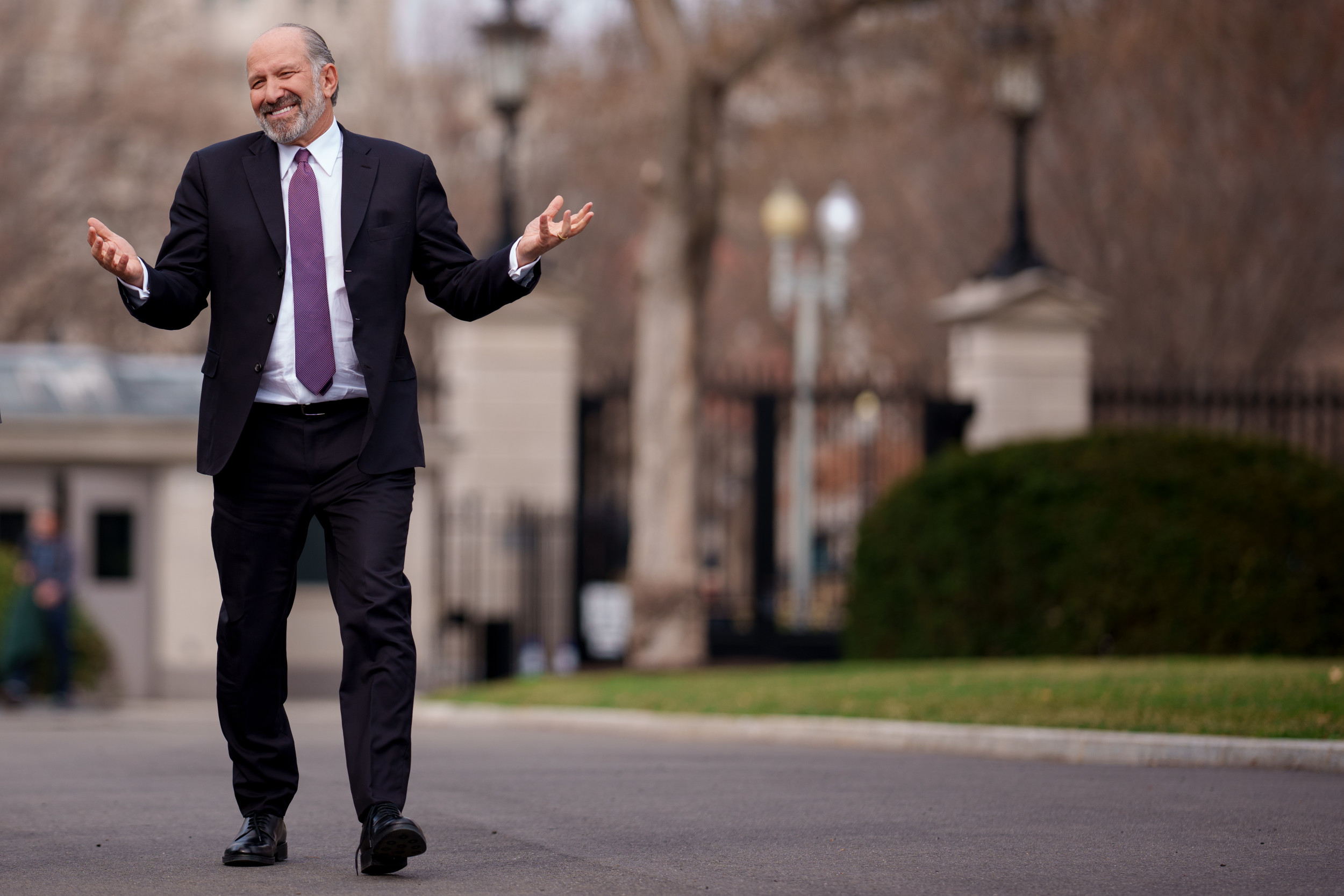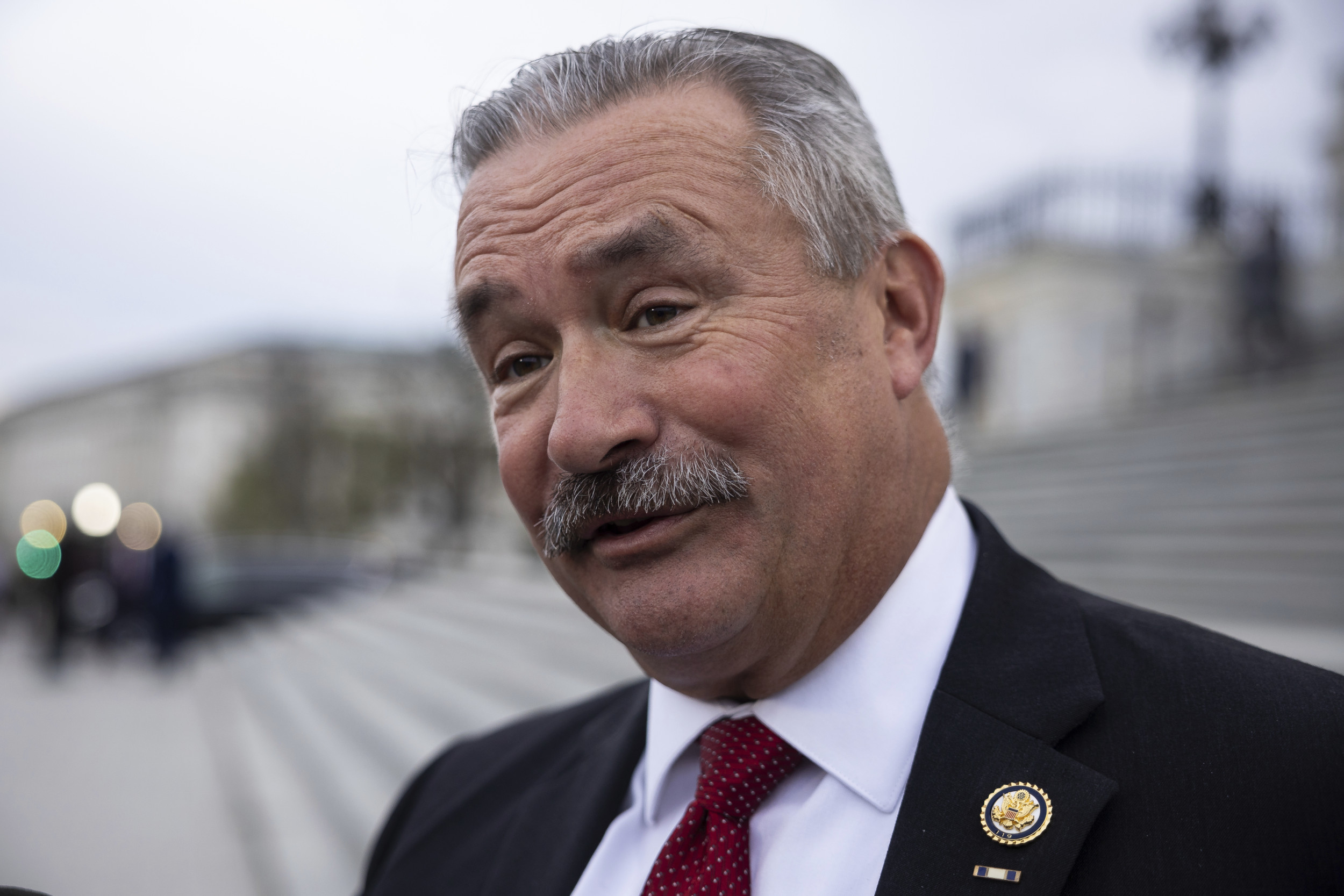On Wednesday, the Supreme Court will hear oral arguments in a case involving the rights of doctors to give puberty blockers and gender hormone drugs to transgender minors.
As it involves prepubescent children, it has ignited enormous controversy and is likely to be one of the most important Supreme Court decisions of 2025, not least as the issue of transgender rights became a key factor in the presidential election.
The case is U.S v. Jonathan Skrmetti. Skrmetti is the Tennessee attorney general and became a party in the case after parents and transgender-rights groups launched a legal challenge to a Tennessee law that bans transgender drugs for minors.
Conservative author Matt Walsh is among those who have said that the case could deliver the same shock as the Dobbs case in 2022, which overturned the federal right to abortion.
"Next Wednesday, the Supreme Court will hear oral arguments in U.S. v. Skrmetti. This is the culmination of our fight against the barbarism of child sex-changes, and it could be a Dobbs-style earthquake in terms of protecting children," he wrote on X, formerly Twitter.
The ACLU of Tennessee, one of the groups representing the plaintiffs, says: "When arguing against transgender people and their families, states with bans like Tennessee's have relied heavily on the Supreme Court's opinion Dobbs v.Jackson Women's Health Organization, which overturned Roe v. Wade and allowed states to ban abortion. U.S. v. Skrmetti will be a major test of how far the court is willing to stretch Dobbs to allow states to ban other health care."
The plaintiffs say that the bans violate the equal protection clause by discriminating based on sex and transgender status, and violate parents' due process rights by limiting their ability to guide their children's medical care.
Skrmetti writes in the respondent's brief that Tennessee's ban does not classify based on sex or transgender status and should be evaluated under the less intense rational basis review, requiring the law to be rationally related to a legitimate government interest, just as the Mississippi law in Dobbs was.
To support this, he says similar bans to Tennessee's have been overturned or reviewed in other countries, and that the drugs used in gender-affirming care are still experimental.
One legal expert told Newsweek that he does not expect the Supreme Court to strike down the bans on equal protection grounds, and may even use the case to narrow its definition of the term, which could have far-reaching implications.
Here are some of the issues involved in the case:
What is U.S v Skrmetti?
In 2023, Tennessee passed Senate Bill 1 (SB1), which bans healthcare providers from performing any medical procedure "enabling a minor to identify with, or live as, a purported identity inconsistent with the minor's sex" or any medical procedure "treating purported discomfort or distress from a discordance between the minor's sex and asserted identity."

The law says that includes "telehealth," which involves video calls and mailing hormone blockers or other drugs to a person in another state.
It is not a legal defense for doctors to claim "that the minor, or a parent of the minor, consented to the conduct that constituted the violation," the bill adds. It allows exceptions if doctors are treating "congenital defect, precocious puberty disease, or physical injury."
The Biden administration quickly joined parents and others seeking to overturn the Tennessee law.
In its legal brief, the U.S Department of Justice noted some of the comments by Tennessee politicians during debates on the bills.
They included Representative William Lamberth, who sponsored the bill and told the Tennessee legislator that there is "a growing social contagion of gender dysphoria" driven in part by "social media glorifying the process of transitioning."
At the same hearing, the Justice Department noted, Representative Paul Sherrell said: "If you don't know what you are—a boy or girl, male or female—just go in the bathroom and take your clothes off and look in the mirror, and you'll find out."
The federal district court for the Middle District of Tennessee agreed to impose an injunction on the Tennessee law, based on the fundamental rights of parents to decide what's best for their children.
The Sixth Circuit Court of Appeals disagreed and said that such a right is not rooted in the history of American jurisprudence.
What Does It Mean for Gender-Affirming Care?
If Tennessee wins the case, the law will continue to ban "certain forms of medically necessary care for transgender minors with a diagnosis of gender dysphoria," in the words of the Justice Department court briefing.
One of those minors is a teenager identified in court courts as L.W. She is the daughter of the Williams family, and through her parents, she is one of the lead plaintiffs in the Supreme Court case.
At an ACLU press briefing on Tuesday, her father, Brian Williams, said that L.W. began taking hormone blockers at 13 and female hormones almost a year later.
He said L.W., who is now 16 years old, has been forced to travel out of state to get treatment, and this is "a shrinking option as more states ban this procedure."
He said his family has been fortunate to be able to travel to other states and that their "hearts break" for the families of other transgender minors who have not been able to afford to travel outside Tennessee.
Americans generally support preventing discrimination against trans people, polls show, though they are split on specific policies.
A Gallup poll in June 2024 found that 61 percent of respondents opposed bans on "psychological support, hormonal treatments, medical surgeries" for transgender minors, though 53 percent of Republicans favored such bans.
A YouGov poll in February 2024 found that 52 percent of respondents opposed youth hormone therapy specifically and 28 percent supported it.
How Might The Supreme Court Rule On The Case?
A major development in the case has been the reelection of Donald Trump.
According to the ad tracking company AdImpact, Republicans spent $215 million in adverts that carried anti-trans messages this election cycle. "Kamala is for they/them. President Trump is for you," according to one notable ad.
Trump will likely direct the Justice Department to switch sides in the Supreme Court case, according to Chase Strangio, an ACLU attorney who is set to become the first transgender lawyer to address the Supreme Court.
However, he said that the case has already been filed and there is little that the Trump administration can do to change its fundamentals.
"Nothing changes with respect to the underlying dispute in the case, regardless of what happens with the incoming administration," he said.
Peter Shane, a New York University law professor, said that the Supreme Court is unlikely to place the Tennessee law under "heightened scrutiny"—the very high threshold a law must meet if it threatens fundamental rights.
"The courts reserve so-called heightened scrutiny —that is, more intense judicial review—for statutory classifications that either burden the exercise of a fundamental right, such as voting, or that operate to the disadvantage of a 'suspect class,' such as race or sex," he told Newsweek.
Shane said that the Supreme Court under Chief Justice John Roberts has been reluctant to add new fundamental rights or new suspect classes, which are categories of individuals who have historically been subjected to discrimination and are therefore given special protection.
"The Supreme Court's constitutional rulings that have expanded the rights of gay men and lesbians have actually rested on what the court calls "minimum scrutiny," which asks whether the law is just rationally related to a legitimate government interest.
"All of the Supreme Court victories for LGBT plaintiffs, from Lawrence v. Texas, which forbade the criminalization of same-sex sexual intimacy between consenting adults, to Obergefell v. Hodges, the same-sex marriage case, have rested on the proposition that the laws challenged in those cases lacked a legitimate government interest," he said.
Greg Germain, a Syracuse University law professor, told Newsweek that it is unlikely the Supreme Court would strike down Tennessee's law on equal protection grounds, as the plaintiffs are seeking.
The equal protection clause of the Fourteenth Amendment states the government cannot "deny to any person within its jurisdiction the equal protection of the laws."
"It's true that the law treats underage transgender treatments differently from non-transgender treatments, but the law does not discriminate on the basis of sex: both male and female transgender treatments are barred for minors," Germain said.
Germain believes that, far from extending equal protection, the Supreme Court will use the case to narrow its definition.
"The lower courts are all over the map on equal protection cases, and the government is arguing that transgenderism is a protected class. I suspect the court took this case to limit equal protection challenges to traditional inherent characteristics like race and gender," he said.
fairness meter
About the writer
Sean O'Driscoll is a Newsweek Senior Crime and Courts Reporter based in Ireland. His focus is reporting on U.S. law. ... Read more



